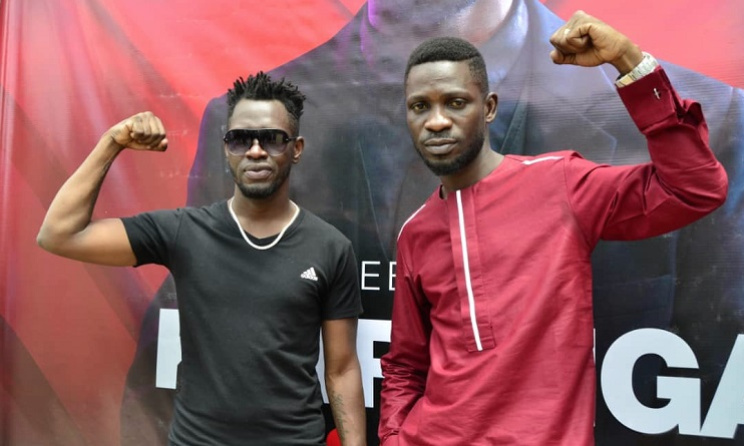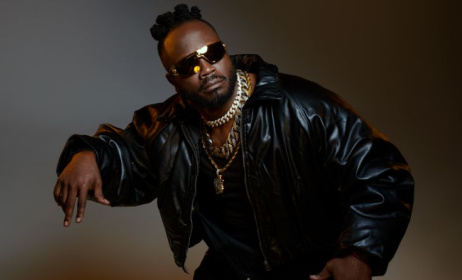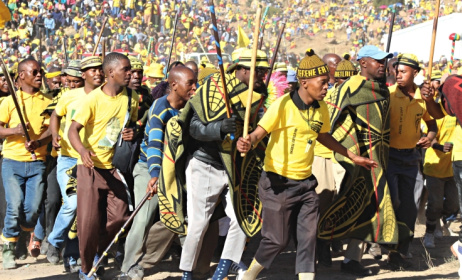Bobi Wine: Ugandan regime is disconnected from reality
The Ugandan government has intensified its efforts to silence critics by placing musician-turned-MP Bobi Wine under house arrest.
 Nubian Li and Bobi Wine
Nubian Li and Bobi Wine
The singer, whose real name is Robert Kyagulanyi, has been under house arrest at his Magere home in the capital Kampala since 23 April. He says he was arrested because the Ugandan authorities sought to prevent him from delivering a notification letter to the authorities about a peaceful demonstration against authoritarianism and police brutality in the East African nation.
He was detained in Busabala on the shores of Lake Victoria on Monday after the police shut down one of his concerts and fired tear gas at his fans, sources said.
"Police and the military have been deployed at my residence since yesterday, after the violent arrest," he wrote on Twitter. "My home is under siege. They have surrounded my fence and installed barricades on all roads leading to my home.”
Bobi Wine told Music In Africa that the Ugandan regime, led by President Yoweri Museveni, should expect mounting local and international criticism for trying to silence its critics.
"Interpreting an artist’s work as a direct call to incitement is unconstitutional,” he said. “I planned to submit the letter to the police and then head to Parliament to deliberate. I have been unable to do either of those things. No explanation has been given as to why my freedom of movement is being interfered with. The police say that they are working with orders from above.”
He added that his house arrest was part of a malicious campaign to silence free thinkers and dissenting voices speaking against bad policy and corruption.
“The regime is so disconnected from reality,” Bobi Wine said. “They think that by cutting off my interaction with the public they are blocking my agenda. They are wrong. We are in the 21 century where social media is a potent communication tool. I am using my Facebook and Twitter accounts to communicate to the masses and the message is heard even beyond Uganda.”
He also challenged fellow musicians to be more socially responsible. “It's important that we speak as one, as it enables us to give a voice to those less heard. Music and poems were used during the Sudan revolution. It is time that we also put to use our protest music.
“I insist that we have a social responsibility to the public. These people support our work. Many artists in Uganda have been intimidated while others have been bought off by the regime, but I am glad that there are a few that stand for what is right.”
And the musician, who recently announced that he would challenge Museveni in the 2021 presidential election, has been using his time while under house arrest constructively. Yesterday, he posted a video of himself and fellow activist and musician Nubian Li composing a song with the caption, "While we're under house arrest, let's make some music." In the video the two musicians sing: "Afande sipigani nawe, nakupigania" (Dear police officer, I am not fighting you but rather I am fighting for you).
Nubian Li said many members of the public were dissatisfied with Bobi Wine's house arrest. “There have been some protests in Kampala and they will not stop,” he said. “Nothing justifies putting him under house arrest. It only shows that the government has little tolerance for challenging voices. All he did was write on Facebook and asked the public to accompany him to the police to deliver the letter. The people were willing and that was why they turned up ready to hold a peaceful protest against the obvious police brutality and other human rights abuses from the government.”
Meanwhile, the US embassy in Kampala has issued a statement about Bobi Wine's house arrest. "Today we join the many Ugandans asking why their government has recently blocked musical concerts and radio talk shows, disrupted peaceful demonstrations and rallies, and deployed heavy-handed security forces against peaceful citizens. Uganda’s Constitution guarantees freedom of assembly and expression. We echo the Ugandan people in calling on the government to respect these rights. Strong leaders and states do not stifle speech – they allow their citizens to participate fully and without fear in a vibrant multi-party democracy," the statement reads.





























Comments
Log in or register to post comments